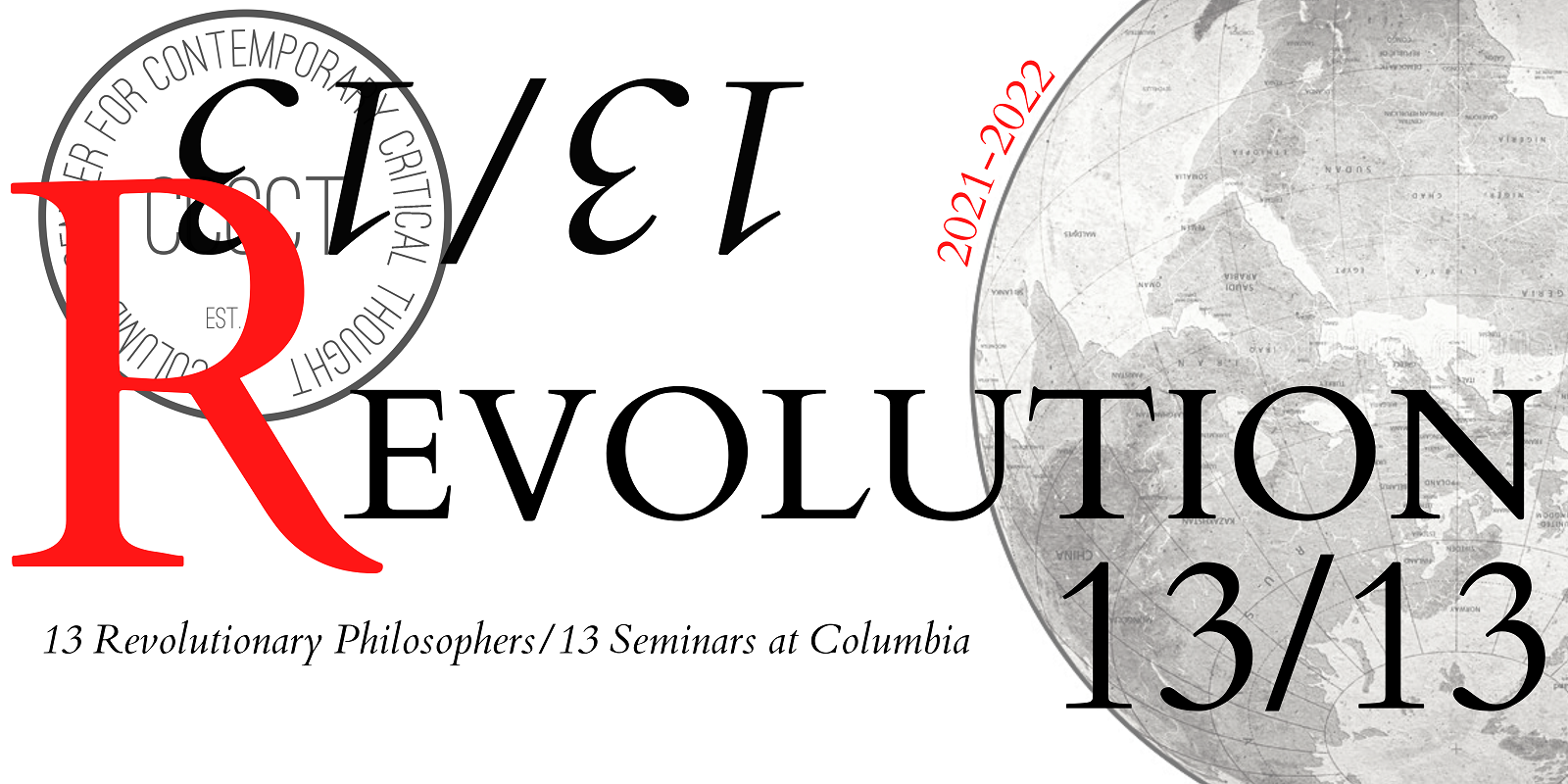Keeanga-Yamahtta Taylor and Bernard E. Harcourt
read and discuss
The Combahee River Collective Statement (1977) and How We Get Free: Black Feminism and the Combahee River Collective by Keeanga-Yamahtta Taylor
in conversation with
Samira Akbarian, Alyssa Battistoni, Che Gossett, and Jack Halberstam
Wednesday, November 10, 2021
The People’s Forum
The Combahee River Collective (“CRC”) statement, written in 1977, remains today a formative declaration of American Black feminism that continues to influence political organizing, critical thought, and social movements, as we have witnessed all around us now with the Movements for Black Lives and to defund the police. The CRC statement, Keeanga-Yamahtta Taylor explains, coined the term “identity politics,” introduced the expression “interlocking oppression,” and showed the world a paradigm of how to think and act at the intersection of antiracism, antisexism, antipatriarchy, and anticapitalism. Along with the writings and engagements of members of the CRC, such as Audre Lorde and Barbara Smith, and other interventions, such as the collection This Bridge Called My Back: Writings by Radical Women of Color, the CRC statement shaped the course of Black feminist organizing. In the words of the abolitionist historian, Barbara Ransby, “the Combahee River Collective statement, as well as the example of the Combahee River Collective, laid the ground for a number of projects that came after that,” from the Black Radical Congress and the African American Women in Defense of Ourselves (AAWIDO) projects of the 1990s to the Resist Reimagine Rebuild coalition in Chicago, the Black Youth Project 100, and the Movement for Black Lives more broadly in the 2010s and still today.
Founded in 1974 as an off-shoot of the Boston chapter of the National Black Feminist Organization, the CRC assembled a group of radical Black women who identified as Black feminist, lesbian, and socialist, to think, work, and struggle together in political action, study groups, retreats, teaching, publishing, and organizing. The CRC engaged in political organizing and action, especially in the areas of reproductive rights and the defense and protection of women of color, militating against forced sterilization, for the right of access to abortion, for the creation of shelters for Black women who were survivors of abuse and poverty. Through the publication of its statement in 1978 and its political actions, the critique and praxis of the CRC influenced generations of activists and thinkers. “Theoretically rich and strategically nimble,” Keeanga-Yamahtta Taylor writes in The New Yorker, “it imagined a course of politics that could take Black women from the margins of society to the center of a revolution.” In her comments on the CRC statement delivered at the Socialism 2017 Conference (included in Keeanga-Yamahtta Taylor’s How We Get Free), Barbara Ransby provides an inspiring recapitulation of the continuing vitality of the statement and engagements of the Collective:
If we take to heart the spirit and politics of the Combahee River Collective Statement, what we go away with is this: (1) never be afraid to speak truth to power, and (2) in the face of racist, misogynist threats of violence and attacks, when you have the impulse to either fight or flight, what do you do? Fight! And, (3) always ally yourself with those on the bottom, on the margins, and at the periphery of the centers of power. And in doing so, you will land yourself at the very center of some of the most important struggles of our society and our history.
Welcome to Revolution 4/13!

